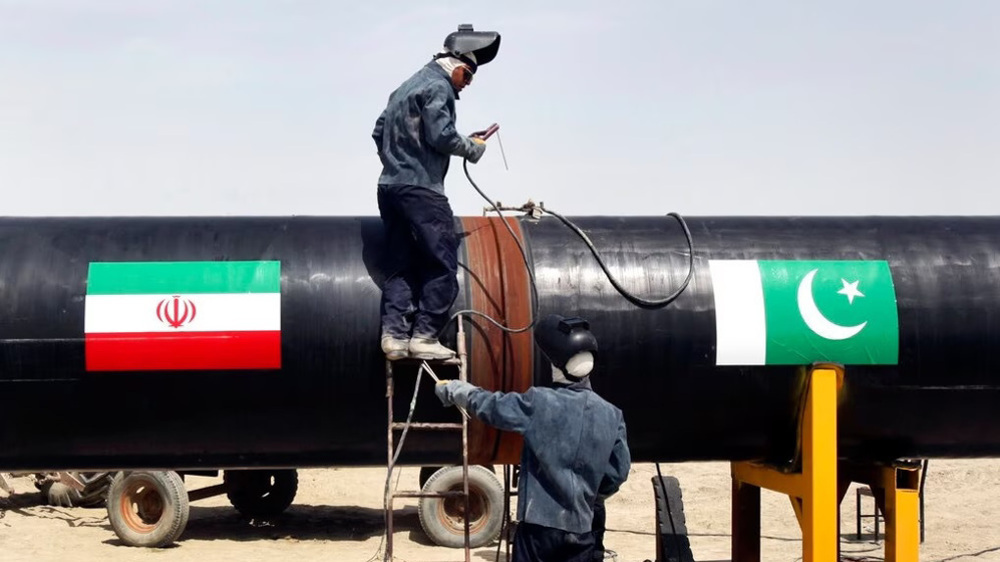
Pakistan's Petroleum Minister Musadik Malik has underlined his country’s urgent demand for a US sanctions waiver regarding the gas pipeline from Iran, saying Islamabad's position on the gas transfer project with the Islamic Republic is not merely an expression of desire but "the need of the hour."
Malik pointed to the Pakistan-Iran gas pipeline, known as the Peace Pipeline, a long-term project between Tehran and Islamabad that has faced delays and funding challenges due to US sanctions for several years.
“We are earnestly striving to advance this project and we have numerously conveyed this commitment to our Iranian brothers,” the oil minister told local broadcaster Geo News television channel.
Touching on the US acts of obstructionism in the implementation of the joint gas project with Iran, Malik said, "Pakistan will definitely continue its contacts with the American side regarding Iran's sanctions waiver."
Pakistan's petroleum minister stressed that since Iraq, Turkey and the Republic of Azerbaijan are able to benefit from the sanctions exemption by the US administration, Pakistan should also benefit for the implementation of the Tehran-Islamabad gas pipeline project.
"We will definitely try to receive exemptions from sanctions by the United States and at the same time we assure our brother country Iran that Pakistan is committed to the gas project and favors investment in it,” Malik said.
"Islamabad's position is clear and we do not just express our desire for the gas transfer from the Islamic Republic of Iran, but rather we need this project.”
Speaking to congressmen during a congressional hearing in Washington last Wednesday, the US assistant secretary of State for South and Central Asia vividly stated that the United States opposes the Iran-Pakistan gas pipeline project and is exerting maximum efforts to prevent its construction.
Warning of potential sanctions for Islamabad for doing business with Tehran, Donald Lu claimed that the project was not in the interest of Pakistan as international companies would not invest in it.
Earlier this month, Pakistani Foreign Ministry spokesperson Mumtaz Zahra Baloch underlined that since the pipeline is being constructed inside the country's territory, "We do not believe there is room for any objections by any third party."
Back in February, Pakistan gave the green light for advancing much-delayed work on the joint gas pipelines project with Iran within its territory in a significant step towards enhancing energy cooperation between the two countries.
Pakistan’s Cabinet Committee on Energy (CCoE) granted its approval to start construction on the 80-kilometer pipeline from the Pak-Iran border to Gwadar.
The project, launched in 2013, had initially required Pakistan to finish the construction of the pipeline on its territory by the end of 2014.
However, the project faced prolonged delays due to the potential challenges it posed for Pakistan amid international sanctions targeting Iran, which has already completed the laying of a 900-kilometer pipeline.
Iran has already invested $2 billion in the pipeline on its side of the border.
Pakistan is likely to face an $18-billion fine if it terminates the gas pipeline agreement.
Iran and Pakistan signed a five-year trade plan in August 2023 and set a bilateral trade target at $5 billion.





Leave a Reply